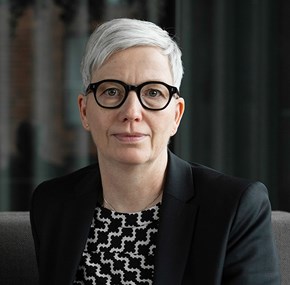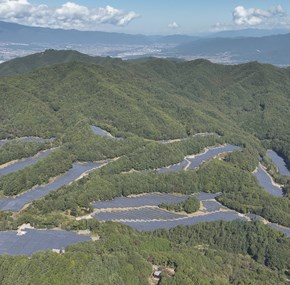Why joint ventures may be the future of renewable energy projects
For a number of years, Obton's acquisition strategy for new projects has mainly been based around its headquarters in Denmark. However, the experience of the more than 500 projects in countries like France, Germany, Belgium, The Netherlands, Italy and Spain has shown that projects can be strengthened by having local roots and physical presence in the country where the project is actually located.
“The need for local presence has been compounded by our tendency to move earlier and earlier into development projects. In 80% of the projects we are planning to implement in 2019, we are already on board during the development phase. This trend has formed the basis of new project partnerships in the shape of joint ventures,"" says Nicky Larsen, Senior Business Developer at Obton. Together with colleagues in the company's Acquisition & Finance team, he has the responsibility for identifying new collaboration opportunities, and entering into agreements with future partners.
Setting up a joint venture
The advantage of a joint-venture collaboration basically comes down to the fact that each partner brings their own expertise to the table. The local developer will typically provide a well-known name, network and knowledge of the area, as well as technical expertise and experience in the design and development of solar PV systems. The investment partner, on the other hand, provides comprehensive know-how on the structuring of projects and construction optimization and, not least, is also able to provide equity and non-recourse financing; which can be difficult for smaller developers to offer. A well-known and established name amongst international financing banks and institutions also further helps attracting finance on new markets or for new types of projects.
” It was exactly this need for a brand name that could help attract both equity and project finance that prompted the Australian developer Torus to contact us around six months ago. They had a number of concrete ideas for more projects but were lacking someone with a brand in the industry that could put together the required capital. At the same time, Obton were keen to enter the Australian market, which was completely new to us,"" explains Nicky Larsen. He continues:
” We have now established a joint venture to buy, develop and build solar projects in Australia. There are already three solar projects underway – which is a mix of ground mounted and roof top projects.”
The Netherlands is another market where Obton has already had its first experiences with joint ventures. Here, the collaboration with the developer GreenIPP has been running for a couple of years and the first projects have already been commissioned. The lesson to be learned from this is that a faster and more flexible set-up is made easier with the physical presence of a local partner who is closer to the project.
Keep the partnership agreements simple
When Obton, as in Australia, enters into a brand-new market, the company carries out thorough research into the regulations around taxation, company structures, currency risk and political risk; such as the risk of changes to state-subsidy policies. But once that has been settled, and the agreement needs to be put into words, there are clear advantages in keeping the basis for collaboration as simple as possible.
” Each party, of course, needs to have a thorough understanding of the regulations, and complete a due diligence process. But our goal is to make simple agreements that enable a fast process, where it only takes about half a year from the first contact to start-up; which is considered fast in this industry. For a smaller or medium-sized developer, the benefit of a joint venture with a partner of our size lies in the fact that the level of complexity is far less than that of a multinational utility or a large pension company.”
Open for new opportunities
Obton is constantly on the lookout for developers with projects lacking a strong financing partner. Currently, the company is looking at new projects in Ireland and Canada, and enquiries via LinkedIn and the website are coming in all the time. While utility companies often require projects to be large-scale, a small roof project with a degree of complexity can be just right for the investment company if further future projects can be identified.
” We see joint ventures as an important model for future projects in the area of renewable energy. This is why we take all enquiries seriously, even those from small-scale players – as long as they have proven experience. However, the investment volume of the project or of a portfolio should preferably exceed 20-25 million Euros in order to match the resources necessary for set-up,” concludes Nicky Larsen.






